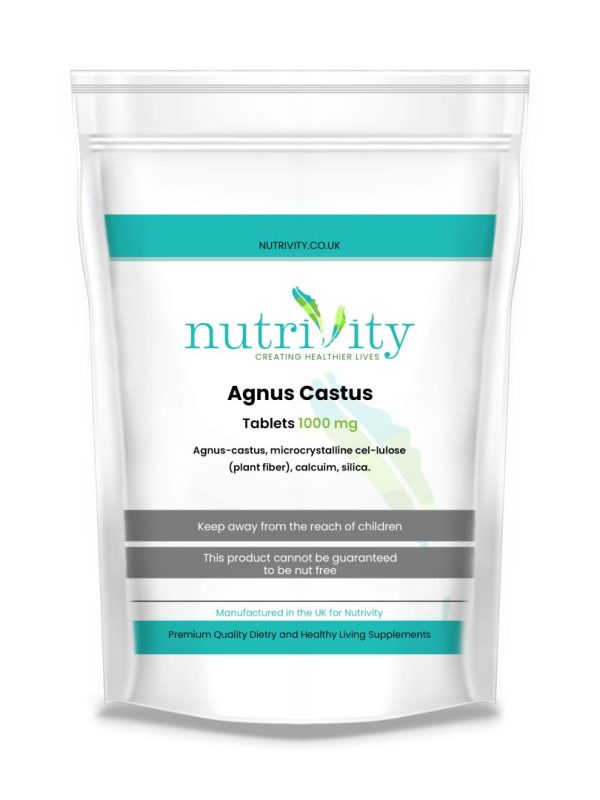What are the side effects of agnus-castus?
Unveiling the Side Effects of Agnus-Castus: What You Need to Know for Balanced Wellness
Agnus-castus, also known as chaste berry, is a herb that has been used for centuries to treat a variety of conditions. It is believed to have many health benefits, including the ability to regulate menstrual cycles and alleviate premenstrual syndrome (PMS). However, like any medication or supplement, agnus-castus may have side effects. In this article, we will explore the potential side effects of agnus-castus and what you need to know before taking it.
What is agnus-castus?
Agnus-castus is a shrub that is native to the Mediterranean region and Central Asia. It is commonly used in herbal medicine to treat a variety of conditions, including PMS, irregular periods, infertility, and menopause symptoms. The active compounds in agnus-castus are believed to regulate the levels of hormones such as prolactin, which plays a key role in the menstrual cycle.
Potential side effects of agnus-castus
While agnus-castus is generally considered safe when taken as directed, some people may experience side effects. These can include:
Headaches
Some people may experience headaches while taking agnus-castus. If you have a history of migraines or frequent headaches, you should be cautious when taking agnus-castus and speak with your doctor.
Agnus Castus
Digestive issues
Agnus-castus may cause digestive issues such as nausea, vomiting, diarrhea, or stomach cramps. If you experience any of these symptoms, you should stop taking agnus-castus and consult your doctor.
Allergic reactions
In rare cases, agnus-castus may cause an allergic reaction. Symptoms of an allergic reaction can include hives, itching, swelling, or difficulty breathing. If you experience any of these symptoms, seek medical attention immediately.
Interactions with medications
Agnus-castus may interact with certain medications, such as birth control pills, hormone replacement therapy, or dopamine agonists. If you are taking any medications, it is important to speak with your doctor before taking agnus-castus to avoid any potential interactions.
Hormonal effects
Agnus-castus may have hormonal effects on the body, which can lead to changes in the menstrual cycle, breast tenderness, or mood swings. If you experience any of these symptoms, stop taking agnus-castus and speak with your doctor.
Pregnancy and breastfeeding
Agnus-castus may affect hormone levels and should not be taken during pregnancy or breastfeeding unless under the guidance of a healthcare provider.
Understanding Agnus-Castus: Benefits and Considerations
Agnus-Castus, also known as Vitex or Chaste Tree, has gained popularity in natural medicine circles for its purported benefits in hormonal balance and reproductive health. Derived from the berries of the chaste tree, this herbal remedy has been utilized for centuries to address a variety of health concerns, particularly those related to menstrual irregularities, premenstrual syndrome (PMS), and menopause.
Exploring Potential Side Effects
While Agnus-Castus is generally well-tolerated by many individuals, it’s crucial to acknowledge the potential side effects associated with its use. Understanding these side effects can empower individuals to make informed decisions about their health and wellness journey.
One common side effect of Agnus-Castus is gastrointestinal discomfort, including nausea, upset stomach, and diarrhea. These symptoms are typically mild and transient but may occur, particularly when starting a new regimen or taking higher doses.
Additionally, some individuals may experience headaches or dizziness when using Agnus-Castus. These side effects are often temporary and diminish with continued use as the body adjusts to the herb.
Rare but Important Considerations
While rare, allergic reactions to Agnus-Castus can occur in susceptible individuals. Symptoms of an allergic reaction may include itching, rash, swelling, or difficulty breathing. It’s essential to discontinue use and seek medical attention if any signs of an allergic reaction manifest.
Furthermore, individuals with certain medical conditions or those taking medications should exercise caution when using Agnus-Castus. Consulting with a healthcare professional before incorporating this herbal supplement into your routine is advisable, especially if you have a history of hormone-sensitive conditions, such as breast cancer or endometriosis.
Conclusion:
Agnus-castus is a natural supplement that has been used for centuries to treat a variety of conditions. While it is generally considered safe when taken as directed, it may have potential side effects, including digestive issues, headaches, allergic reactions, interactions with medications, and hormonal effects, and should not be taken during pregnancy or breastfeeding. If you experience any side effects while taking agnus-castus, stop taking it and speak with your healthcare provider.
While Agnus-Castus offers promising benefits for hormonal balance and reproductive health, it’s essential to be aware of potential side effects and considerations. By understanding the nuances of this herbal remedy, individuals can make informed choices that support their overall well-being.
- Agnus-castus side effects
- Chasteberry side effects
- Agnus-castus and headaches
- Agnus-castus and digestive issues
- Agnus-castus and allergic reactions
- Agnus-castus interactions
- Agnus-castus and hormonal effects
- Agnus-castus and pregnancy
- Agnus-castus and breastfeeding
- Side effects of Agnus-Castus
- Agnus-Castus benefits and risks
- Agnus-Castus side effects on hormones
- Chaste tree berry side effects
- Agnus-Castus allergic reactions
- Herbal remedies for hormonal balance and side effects
[Sassy_Social_Share]





